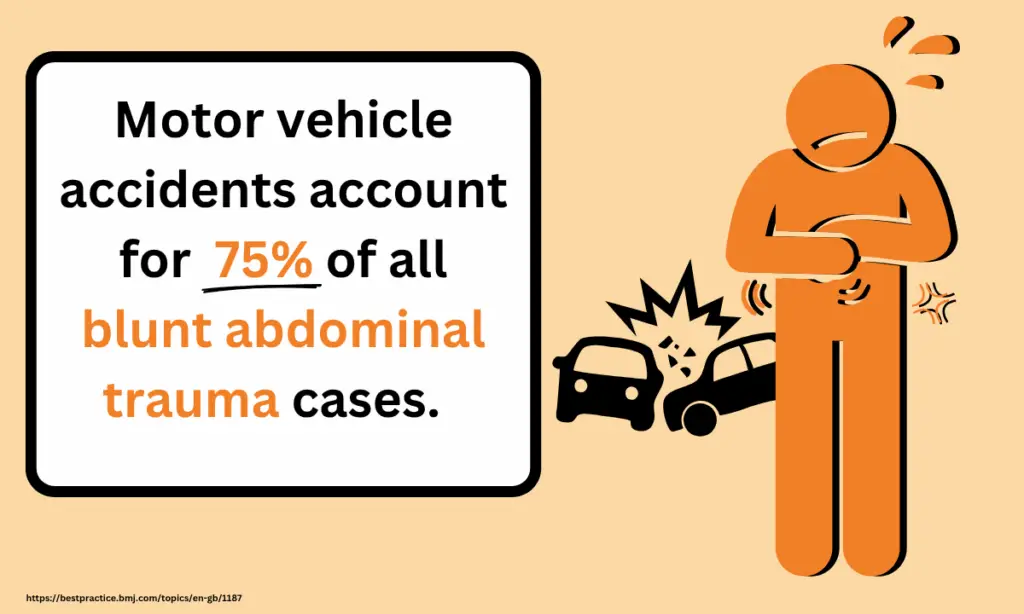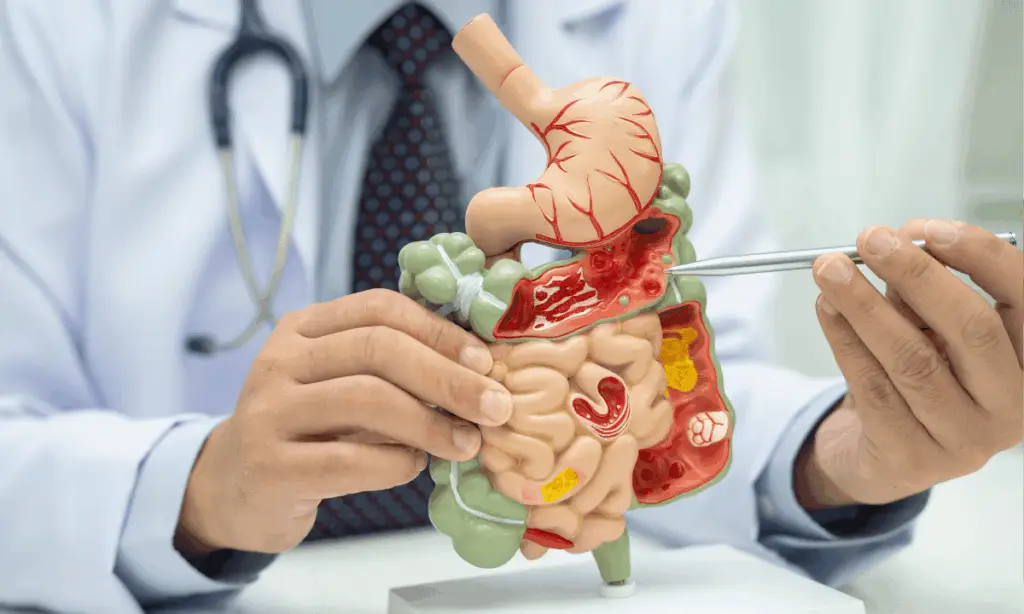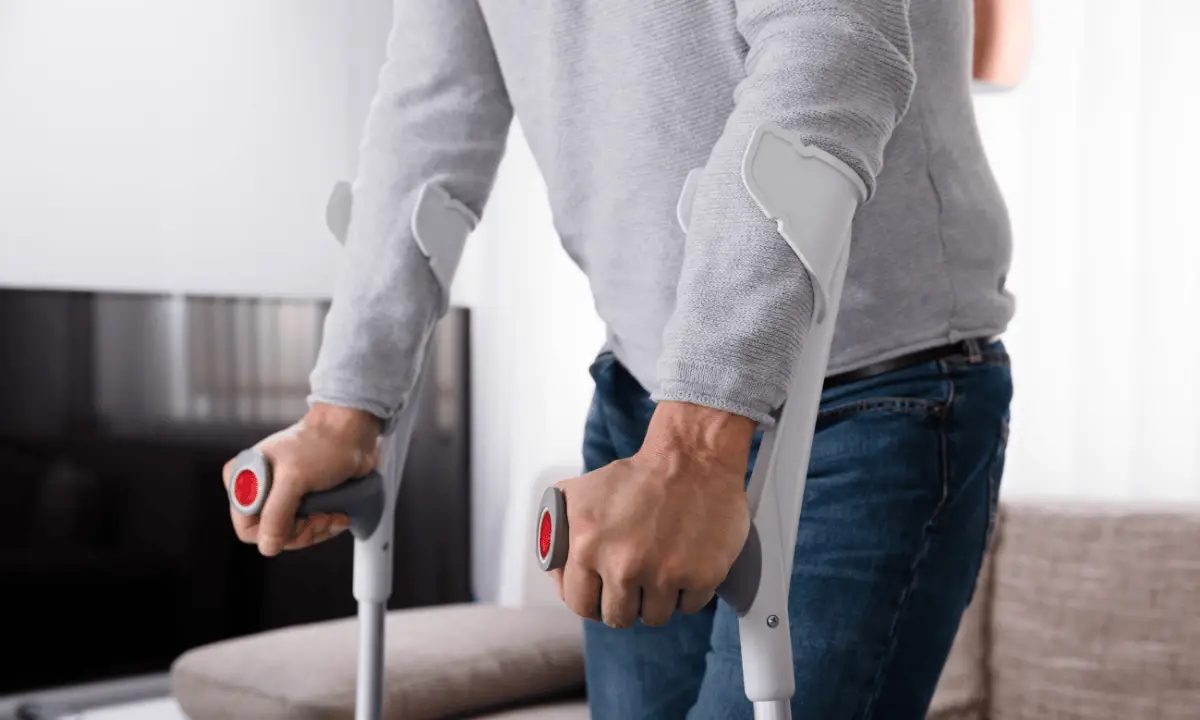Suffering an abdominal injury can be far more than just physically painful. It can disrupt your work, limit your independence, and cause ongoing emotional and financial stress. Whether you’re dealing with internal trauma from a workplace accident, a motor vehicle collision, or a hernia caused by repetitive strain, knowing your compensation rights is crucial. Many Australians are unaware they may be entitled to claim abdominal injury compensation, even for conditions like hernias, which may slowly worsen over time.
Understanding the process, your entitlements, and what steps to take next could make all the difference to your recovery and financial security. Read on to find out what you may be entitled to claim after a hernia or other abdominal injury.

What Is an Abdominal Injury?
An abdominal injury refers to any trauma or damage to the abdominal region of the body, which includes the stomach, intestines, liver, kidneys, bladder, and other vital internal organs. These injuries can range from mild soft tissue damage to life threatening internal bleeding. Whether the injury is caused by blunt force, penetrating trauma, or repetitive strain, it often requires urgent medical attention and may lead to long term health complications. For individuals who have suffered such injuries due to a car accident or in the workplace, understanding the nature of the injury is the first step toward claiming compensation.
Common Types of Abdominal Injuries
Abdominal injuries can present in various forms depending on the cause and severity of the trauma. Some of the most common include:
Contusions and bruising: Often caused by blunt force trauma, such as a seatbelt injury in a car accident or impact from heavy equipment.
Internal bleeding: A serious condition that may not be immediately visible but can become life-threatening if untreated.
Organ damage: Injuries to the liver, spleen, kidneys, or intestines may require surgery and long recovery times.
Soft tissue damage: Including muscle strain and abdominal wall injuries, which can result in ongoing pain and limited mobility.
Each type of injury can have a significant impact on your ability to work and perform daily activities, which is why compensation can be available to alleviate the physical and financial stresses that come with an abdominal injury.
Hernia as a Common Abdominal Injury
Hernias are one of the most frequently reported abdominal injuries, particularly among workers involved in manual labour or repetitive lifting. A hernia occurs when internal tissue pushes through a weak spot in the abdominal wall, creating a visible bulge.
Small hernias may go unnoticed at first, but can worsen over time if left untreated, particularly when ongoing strain or abdominal pressure is involved from repeated manual labour at work. The hernia may increase in size as the opening in the abdominal wall enlarges, allowing more tissue, or even parts of organs like the intestine, to push through.
What may start as a mild bulge or discomfort can develop into persistent pain and restricted movement. More serious complications can also arise, including incarceration, where the hernia becomes stuck and cannot be pushed back in, potentially causing a bowel obstruction. In severe cases, strangulation may occur, cutting off blood flow to the trapped tissue and resulting in a medical emergency that requires immediate surgery.
You can read more about compensation claims for repetitive strain injury here.

Causes of Abdominal Trauma in the Workplace or Road Accidents
Many abdominal injuries happen in high-risk environments or through unexpected accidents. Common causes include:
Falls from ladders, scaffolding, or unprotected edges can result in serious abdominal trauma, especially if the individual lands on a hard surface or a protruding object. These types of injuries are common in the construction and maintenance industries and often involve internal organ damage or blunt trauma to the stomach area.
Click here to find out more about how we can help you claim compensation after a fall at work.
Repetitive lifting, pulling, or pushing heavy items without proper technique can strain the abdominal wall over time, leading to hernias or muscle tears. Manual handling injuries are common in warehouse, aged care, and labour-intensive jobs and often lead to long-term physical limitations and time off work.
Being struck by a moving object, falling equipment, or a sudden collision can lead to blunt abdominal injuries. These injuries might not be immediately visible but can cause severe internal bleeding or organ damage, requiring urgent medical intervention. Such impacts are frequent in factory and construction sites, and can result in catastrophic injury claims.
Read about how we handle catastrophic injury compensation claims here.
Penetrating abdominal trauma, such as being impaled by tools, sharp machinery, or shattered debris, can result in life-threatening injuries. This type of trauma is less common but extremely serious and typically requires emergency surgery. Nerves can also be severed in these types of accidents leading to ongoing complications after the accident.
Crush incidents involving heavy machinery, collapsing structures, or vehicle rollovers can compress the abdomen and damage internal organs. These crush injuries often result in multiple complications, including bleeding, infections, or even permanent disability.
Car and truck accidents are a major cause of abdominal trauma, accounting for nearly 75% of all abdominal trauma incidents. Seatbelts, steering wheels, and airbags, while lifesaving, can sometimes cause blunt abdominal injuries during high-speed collisions. Motorcyclists and pedestrians are particularly vulnerable to direct impact injuries due to the lack of external protection compared to drivers within a car.
Can I Claim Compensation for an Abdominal Injury at Work?
If you’ve suffered an abdominal injury while performing your job duties, you may be entitled to workers compensation. Whether your injury occurred suddenly, such as from a fall, or developed over time due to repetitive strain, workers compensation laws are designed to support your recovery with financial and medical assistance.
If negligence, unsafe working conditions, or a lack of proper safety equipment contributed to your injury, your case may also involve additional claims such as a common law claim (also known as a work injury damages claim).
Even if your employer wasn’t at fault however, you’re still eligible to claim compensation as NSW workers compensation is a no-fault scheme.
What Workers Compensation Entitlements Can You Claim for an Abdominal Injury?
✅ Weekly Payments for Lost Wages
If your abdominal injury prevents you from working, you may receive weekly compensation payments to cover your lost income:
First 13 weeks: Up to 95% of your pre-injury average weekly earnings (PIAWE), including regular overtime and allowances.
Weeks 14–260: Payments may reduce to up to 80%, depending on your capacity to return to work. If you work at least 15 hours a week and earn below your pre-injury wage, you may still receive up to 95%.
After 260 weeks: Payments generally cease after 5 years, however payments can continue if you’ve been assessed with a Whole Person Impairment (WPI) higher than 20%.
Click here to read more about Whole Person Impairment (WPI) payouts.
✅ Return-to-Work and Vocational Support
Returning to work after a serious abdominal injury can be complex, especially if your injury limits your movement and overall physical capacity. Fortunately, the compensation system provides comprehensive return-to-work support, including:
Modified duties or adjusted hours
Rehabilitation services
Retraining or upskilling for new job roles
Case management to coordinate your recovery and employment goals
If your injury means you can’t return to your previous job, you may be supported in finding suitable alternative employment.
Are you getting the right vocational support after your abdominal injury? Contact our workers compensation lawyers to find out what you are entitled to with our personalised free claim assessment.
✅ Medical and Rehabilitation Expenses
All reasonable and necessary medical costs related to your abdominal injury are covered, so you can focus on healing without the burden of out-of-pocket expenses. Covered treatments include:
GP visits, hospital stays, and specialist consultations
Physiotherapy, chiropractic, and occupational therapy
Surgery (e.g. for a hernia or internal organ damage)
Mental health support if your injury also affects your emotional wellbeing
✅ Lump Sum Compensation for Permanent Impairment
If your injury causes lasting damage, you may also be eligible for a lump sum payment based on a Whole Person Impairment (WPI) assessment. To determine if you are eligible for a lump sum claim, you will need to undergo an examination by an Independent Medical Examiner (IME) once your injury stabilises (typically after 6 months).
For physical injuries involving abdominal trauma, you must have at least 11% WPI to qualify.
For psychological injuries, such as PTSD or depression that has developed as a result of the accident, a 15% WPI is needed.
This lump sum payment recognises the permanent impact your injury has had on your health, lifestyle, and earning capacity. You may also be eligible for a work injury damages claim (also known as a common law claim) if your injury reaches a 15% WPI threshold and was caused by employer negligence.
Unsure if your abdominal injury qualifies for lump sum compensation? Contact us today for a free claim assessment to learn what you may be entitled to claim after an abdominal injury at work.
Exempt workers, such as police officers, firefighters and paramedics, do not need to meet this same threshold to be eligible to claim lump sum compensation payments. Click here to learn more about the requirements for exempt workers.

Can You Make a Common Law Claim for an Abdominal Injury?
If your abdominal injury at work was caused by your employer’s negligence, you may be eligible to pursue a common law claim, also known as a work injury damages claim. This is separate from your standard workers compensation entitlements and allows you to seek a lump sum payout for the economic loss you’ve suffered due to your injury.
What Is Employer Negligence?
Employer negligence refers to a failure to take reasonable steps to protect your health and safety at work. This could include:
Failing to provide proper manual handling training
Lack of safety equipment or supervision
Unsafe work procedures or failure to address known risks
Ignoring reports of faulty machinery or hazardous conditions
If your employer failed in their duty of care and this resulted in your abdominal injury, you may have grounds for a claim.
Find out more about your employer’s duty of care here.
Eligibility for a Common Law Claim after an Abdominal Injury
To make a common law claim for an abdominal injury, you must meet these criteria:
You must have a Whole Person Impairment (WPI) of at least 15%
You must prove that your injury occurred due to employer negligence
You must lodge the claim within 3 years of the date of injury
Common law claims are more complex than standard compensation claims and often require expert legal support to gather medical evidence, employment records, and proof of negligence. Our work injury damages lawyers can simplify this process and fight for maximum compensation on your behalf.
Contact us today for a free claim assessment to see how we can maximise your claim on a No Win No Fee basis.
What Can You Claim Under Common Law?
A successful work injury damages claim allows you to recover past and future loss of earnings due to your injury. This results in a lump sum payout that is based on:
Lost income from the date of injury to settlement
Future lost earning capacity
Lost superannuation as a result of the injury
Should You Pursue a Common Law Claim After An Abdominal Injury At Work?
If you make a common law claim for an abdominal injury caused by employer negligence, it’s important to understand that this type of claim acts as a final settlement of your legal entitlements.
When you accept a lump sum payout through a work injury damages claim, you forfeit your rights to any further weekly payments or medical benefits under the standard workers compensation system. This includes payments for surgery, rehabilitation, or long-term support related to your abdominal injury.
While a common law claim can offer a significantly larger payout, for ongoing economic losses such as reduced earning capacity, it comes with the trade-off of losing access to the safety net of ongoing workers compensation benefits that you may otherwise be entitled to, depending on your WPI.
Making this decision isn’t just about today’s financial needs, it’s about planning for your long-term health, ability to work, and quality of life. Our experienced abdominal injury lawyers are here to guide you through every step. We’ll explain your options in clear, practical terms so you can make the decision that’s right for your future and your family. Contact our work injury damages lawyers today for a free claim assessment to learn what you could be entitled to.

Can I Claim Compensation for an Abdominal Injury After a Car Accident?
If your abdominal injury occurred as a result of a motor vehicle accident, you may be eligible to claim compensation through the Compulsory Third Party (CTP) insurance scheme in NSW. This includes accidents involving cars, trucks, motorcycles, or even forklifts, regardless of whether you were the driver, passenger, pedestrian, or cyclist.
Compensation entitlements for your abdominal injury will depend on whether your injuries are classified as non-threshold injuries, and whether you were deemed to be at fault in the accident.
What Are My Entitlements After a Motor Vehicle Accident Abdominal Injury?
✅ Medical Expenses
This entitlement covers all reasonable and necessary treatment related to your abdominal injury, such as:
Hospital visits and emergency care
Surgery (e.g. hernia repair or internal organ treatment)
Imaging, pathology, and follow-up consultations
Physiotherapy and rehabilitation
✅ Income Support Payments
In the first 13 weeks after your accident, you can receive up to 95% of your pre-accident average weekly earnings. This applies regardless of whether your abdominal injury is classified as a threshold or non-threshold injury.
From week 14 to week 52, your weekly payments may continue at 80–95%, depending on:
Whether you’ve returned to any form of work
Your ongoing medical capacity to work
Whether the insurer accepts ongoing liability
After 52 weeks your income support payments will cease unless you are considered not at fault and your injuries are non-threshold.
Examples of abdominal injuries that may be considered non-threshold injuries could include:
Organ damage
Any tear
Hernias with internal bleeding
Fractures, nerve damage, or post-traumatic stress disorder (PTSD)
✅ Lump Sum Payouts
If your abdominal injury is classified as a non-threshold injury, and you were not wholly or mostly at fault for the accident, you may be entitled to a lump sum compensation payment for both economic loss and non-economic loss (pain and suffering).
Economic loss refers to compensation for the loss of future earnings resulting from your inability to return to work at your previous capacity. Importantly, this is not capped and is based on your earning potential, not just your current income. This includes lost opportunities, such as if you were in the process of launching a side business, working towards a promotion, or changing careers to a higher paying role, these factors may be considered in your claim.
Non-economic loss compensates you for the pain, suffering, and loss of enjoyment of life caused by your injury. You may be eligible for a lump sum payout of up to $761,500, depending on the severity and long-term impact of your abdominal injury. The maximum lump sum payout amount for pain and
suffering increases each year.
To qualify for either of these lump sum benefits, your injury must be assessed as causing more than 10% Whole Person Impairment (WPI). This assessment is carried out by an Independent Medical Examiner (IME) once your condition has stabilised, typically around six months after the accident or resulting surgery.
At Withstand Lawyers, our motor vehicle accident lawyers can arrange your WPI assessment and handle the entire motor vehicle accident claims process on your behalf, ensuring you receive the maximum compensation you’re entitled to. Contact us today to see what you could be entitled to claim after your abdominal injury.
Can I Make a TPD Claim for an Abdominal Injury?
If your abdominal injury has left you unable to return to work , you may be eligible to make a Total and Permanent Disability (TPD) claim through your superannuation fund.
TPD compensation is separate from workers compensation or motor accident benefits and provides a lump sum payment if your injury prevents you from ever working again in your usual occupation, or in any work that suits your education, training, or experience.
Super funds typically include TPD cover by default, so most Aussies have cover without even knowing it.
When Can You Lodge a TPD Claim?
You may be able to claim TPD if:
Your abdominal injury (such as internal organ damage, hernia complications, or chronic post-surgical issues) prevents you from returning to work.
Your treating doctors support that you are unlikely to work again in your trained field.
You were employed and contributing to superannuation at the time of injury.
The definition of “total and permanent disability” varies between super funds and insurance policies, so it’s crucial to check your specific cover. Some funds assess whether you can return to any type of work, while others assess whether you can return to your usual job.
Can You Claim TPD alongside Workers Compensation or CTP?
Yes! A TPD claim is separate from workers compensation or CTP benefits. You can claim both if eligible, allowing you to maximise the financial support available to you.
In some cases, individuals can even make multiple TPD claims if they had more than one active superfund with TPD cover at the time of the accident.
If you’re unsure whether your abdominal injury qualifies for a TPD claim, or even just unsure if you have the appropriate TPD cover, our superannuation lawyers can review your superannuation policy and explain your rights with a free claim assessment. Contact our TPD lawyers today to find out how we can help you claim, all on a No Win, No Fee basis.

Why Choose Withstand Lawyers for Your Abdominal Injury Claim?
At Withstand Lawyers, we understand how a serious abdominal injury can disrupt your health, livelihood, and overall wellbeing. Internal trauma, organ damage, or hernias can lead to long recovery times, lost income, and ongoing medical expenses. Our experienced team of personal injury lawyers is here to stand by you and fight for the compensation you’re entitled to.
Here’s why injured workers and road users across NSW trust us with their abdominal injury claims:
✅ Decades of experience in personal injury compensation claims
At Withstand Lawyers, we focus exclusively on personal injury compensation claims, including CTP, workers compensation, and TPD.
✅ No Win, No Fee
You won’t pay legal fees unless we win your case. We take on the risk, so you can focus on recovery.
✅ Personalised legal support
Every case is unique. We listen to your circumstances and provide one-on-one guidance throughout the process.
✅ Maximum compensation
We’re committed to achieving the best possible outcome and securing the maximum compensation our clients are entitled to.
If you’ve suffered an abdominal injury at work or in a motor vehicle accident, Withstand Lawyers is here to help you navigate the claims process with care, experience, and proven results.
Contact us today for a free consultation, and take the first step toward securing your entitlements and move forward with confidence.

Issa Rabaya
• Bachelor of Laws
• Graduate Diploma in Legal Practice
• Approved Legal Service Provider to the Independent Review Office
• Member of the Law Society

Issa Rabaya
• Bachelor of Laws
• Graduate Diploma in Legal Practice
• Approved Legal Service Provider to the Independent Review Office
• Member of the Law Society
Abdominal Injury Compensation FAQs
Yes, a hernia can be the basis for workers compensation claim, particularly if it results in ongoing pain, requires surgery, or leads to a permanent work restriction. If the hernia occurred due to your work duties, such as heavy lifting or repetitive strain, you may be eligible for compensation including medical expenses, weekly income payments, and a lump sum for permanent impairment.
In NSW, the time limit for making a workers compensation claim is 6 months from the date of the injury or the date you became aware of the injury (e.g. delayed onset from a hernia or internal strain).
You don’t need a WPI assessment for basic entitlements like medical costs and weekly payments. However, a WPI assessment is essential if you’re pursuing a lump sum payout for permanent impairment or pain and suffering. The assessment is typically done once your injury has stabilised, usually around six months after the accident.
Our team can help arrange a WPI assessment on your behalf. Contact us today to find out more.
Yes, you can. A Total and Permanent Disability (TPD) claim is entirely separate from your workers compensation claim.
If your abdominal injury prevents you from returning to work, you may be eligible to claim both workers compensation and TPD. Making a TPD claim will not affect your workers compensation entitlements, and vice versa.
We often have workers compensation clients who are unaware that they also have TPD cover. Contact us today for a free claim assessment to see what you are eligible to claim.
Yes, if your abdominal injury was caused by a motor vehicle accident you may be entitled to compensation under the NSW CTP scheme. This can include payments for medical expenses, lost income, and potentially a lump sum payout for pain and suffering if you were not at fault for the accident and your injury is classified as non-threshold, causing more than 10% Whole Person Impairment (WPI).
You can make a CTP claim if you were injured in a car accident as a:
Driver (if not mostly at fault)
Passenger
Pedestrian
Cyclist or motorcyclist
Even if you were partially at fault, you may still be eligible for statutory benefits. Unsure if you were at fault? Contact our experienced motor vehicle accident lawyers today for a free claim assessment to see what you are eligible to claim.
In NSW, all injured parties can receive weekly payments for up to 52 weeks. If your injury is classified as non-threshold and you are not mostly at fault, you may continue receiving payments for up to five years, depending on your capacity to work and ongoing certification by a medical practitioner.
You should report the accident to police within 28 days and lodge your claim with the CTP insurer within 3 months of the accident. If you miss the deadline, you may still be able to lodge a claim with a valid explanation.




